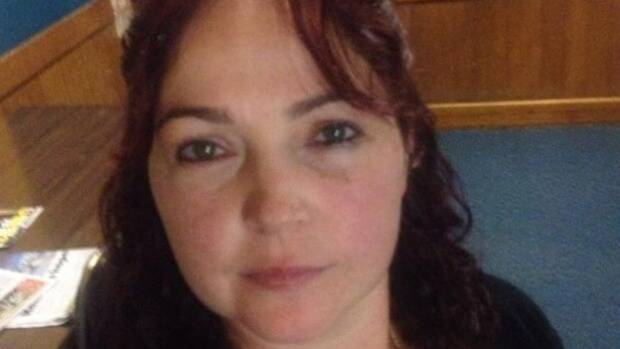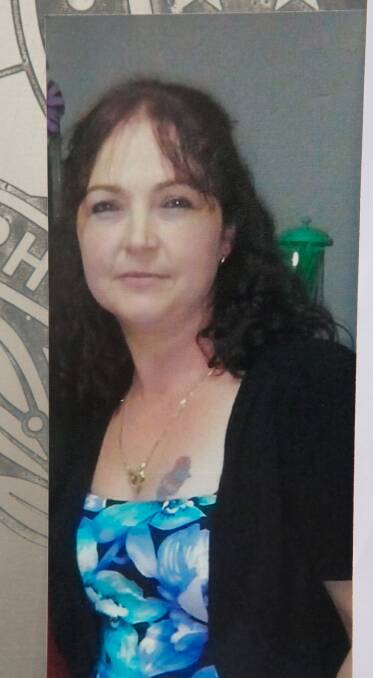
A coroner has found there were multiple lost chances to intervene before former Bendigo woman Fiona Warzywoda was stabbed to death by her abusive ex-partner in 2014.
Subscribe now for unlimited access.
or signup to continue reading
Coroner Audrey Jamieson made four recommendations to Victoria Police, No to Violence/Men's Referral Service and the Federal Court of Australia following an investigation into Mr Warzywoda's murder, although her findings also concerned the Department of Health and Human Services' Child Protection arm and Victorian Legal Aid.
"My investigation has highlighted a number of serious concerns regarding services that had engaged with Ms Warzywoda in the proximate period leading to her death... it appears that their records indicate a failure to make proper enquiries, adequately assess risks of family violence and share relevant information concerning serious risk factors before closing their investigations or discontinuing support," Ms Jamieson said.
Ms Warzywoda, 33, was murdered by Craig McDermott on April 16, 2014 after a final family violence intervention order was made at Sunshine Magistrates' Court.
Their 18-year relationship had ended earlier that year and there was a history of family violence, including verbal abuse and threatening and violent behaviour.
In February 2014, a limited family violence intervention order was made after McDermott became aggressive towards Ms Warzywoda.
The following month, McDermott took three of their four children out for dinner and refused to return them.
The children were later returned to Ms Warzywoda after interim orders were made in the Federal Circuit Court .
Earlier, Ms Warzywoda had reluctantly agreed to place a caveat over their house to qualify for Victoria Legal Aid so she could pursue the recovery order, but expressed concern it would only anger McDermott.
When returned, the children told her McDermott had said he was going to kill her with a pocket knife.
One of the children also disclosed the threat to a teacher.
This was reported to the Department of Health and Human Services' Child Protection, which advised the school to contact police and Ms Warzywoda.
Officers at Melton police station received that call but determined there was no offence and Ms Warzywoda was not at risk.
A police officer from Melton called Ms Warzywoda the following day, but formed the opinion there was no "violent history or an extensive family violence history".
As a result of the threat Ms Warzywoda made an urgent application with the Federal Circuit Court to suspend McDermott's access to the children.
He became agitated after his time with the children was suspended pending an assessment, with a security guard overhearing him say, "I'm going to slice her". This was not reported.
McDermott also threatened her at court the day of her death, although police appeared to have taken no action beyond talking to Ms Warzywoda.
Ms Jamieson's investigation found Ms Warzywoda had been subject to escalating family violence and there were several risk factors regarding McDermott and their relationship.
Ahead of a directions hearing in May, Ms Jamieson expressed concern about Victoria Police's handling of family violence reports, including on the day she died.
She said there were incidents police should have treated as breaches of the family violence intervention orders and officers at Melton did not make proper enquiries as to the history of family violence.
Ms Jamieson also noted Child Protection received four reports in relation to the children before Ms Warzywoda's death, two in the three months prior.

She was concerned that the agency failed to assist Ms Warzywoda when McDermott failed to return the children; that it relied on the school to report the death threat and did not conduct any follow-up; and it failed to undertake any safety planning or assessment of the risk to Ms Warzywoda.
At the directions hearing, a representative for Child Protection said there had been significant changes to its operation since, but there had been a missed opportunity for intervention.
The representative said if these events happened today, high-risk threats would be taken to police, the matter would be referred to a risk assessment panel, Ms Warzywoda would be referred to a support and safety hub, and she would be better supported through a new information sharing scheme.
It was also of concern to Ms Jamieson that Victoria Legal Aid did not have an exemption in 2014 to the requirement to lodge a caveat in order to receive aid, even when it could threaten someone's safety.
Victoria Legal Aid advised Ms Jamieson it had updated its means test to include an exemption when the applicant was fleeing family violence.
The month before Ms Warzywoda's death, the No To Violence/Men's Referral Service received a referral from Victoria Police, but it was deemed inappropriate to contact McDermott because the form indicated police had not contacted him.
As a result, McDermott was never contacted.
Ms Jamieson said No To Violence's policy was appropriate, but recommended the organisation and Victoria Police consider implementing a system to monitor these referrals to ensure they are followed up once police have spoken to the perpetrator.
She also formally recommended Victoria Police develop a system for recording calls to police stations regarding family violence incidents, to create a record when later checks are made.
Ms Jamieson noted a similar recommendation was made after the 2016 investigation into the death of Kelly Ann Thompson, but had not been implemented.
It was also recommended Victoria Police updates its code of practice on family violence investigations to reflect that withholding children is an act of control.
Lastly, Ms Jamieson recommended the Federal Court consider clear guidelines for security guards to ensure serious threats are reported.
"The evidence available to me indicates that there were several lost opportunities for intervention in Ms Warzywoda's death," Ms Jamieson said.
"I confirm that the adverse concerns discussed in this finding... have been subsequently addressed internally by the agencies themselves, or by recommendations of the Royal Commission into Family Violence."
No To Violence welcomed the findings and said it would work with Victoria Police to implement the recommendation.
Chief Executive Officer Jacqui Watt said they would also work with the Federal Court to develop clear guidelines and policies for referral to the Family Advocacy and Support Service.
"No to Violence is keen to work with Victoria Police to review procedures to ensure the maximum protection of family violence victims," Ms Watt said.
Victoria Police said it would consider the findings.
"We will continue to work with our service delivery partners to ensure community safety, and address the significant harm perpetrators of these crimes cause to victims," the organisation said in a statement.
"Victoria Police remains committed to delivering the system-wide reforms that will improve police responses to family violence, raise community awareness and challenge attitudes towards violence."
The Federal Court of Australia and the Department of Health and Human Services have also been contacted.
Have you signed up to the Bendigo Advertiser's daily newsletter and breaking news emails? You can register below and make sure you are up to date with everything that's happening in central Victoria.


